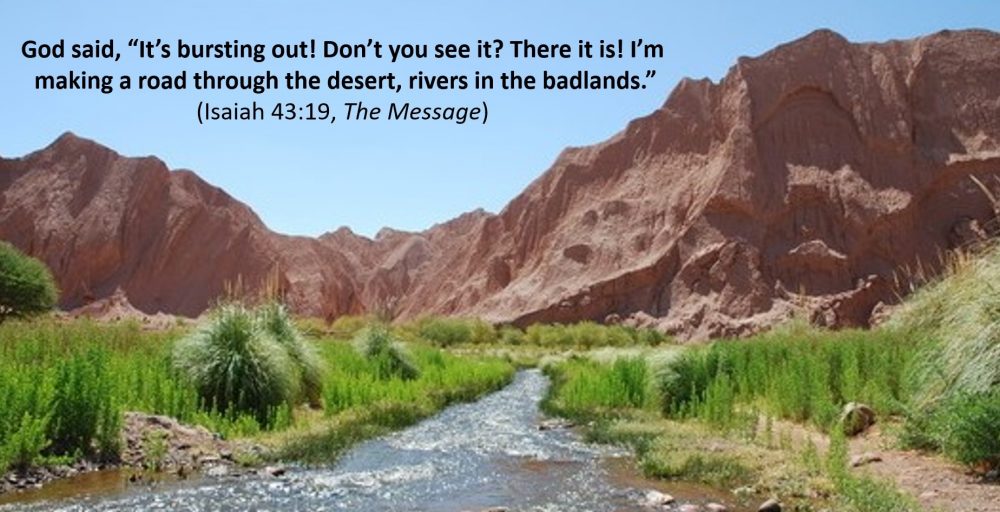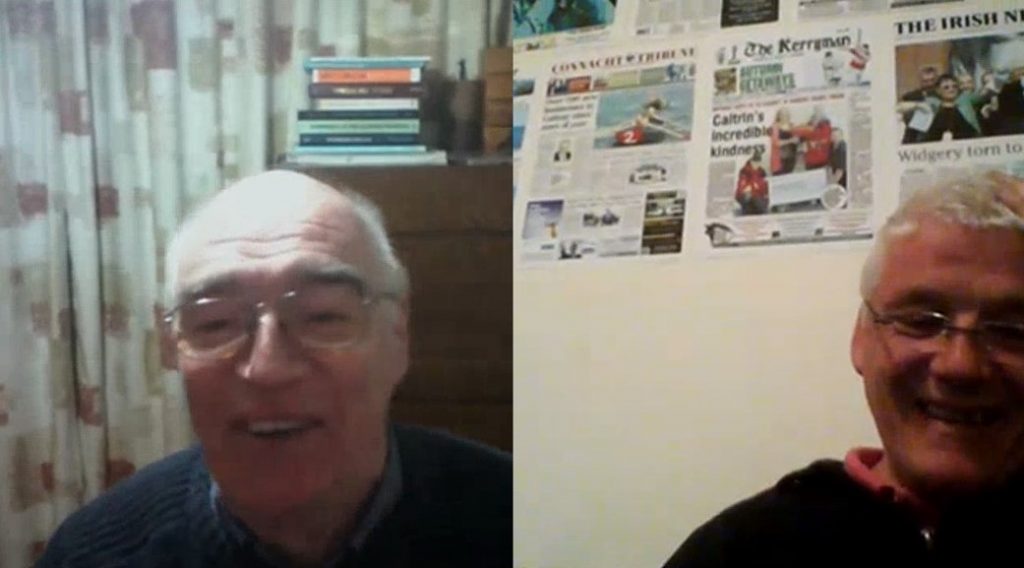
This blog is an edited version of an interview recorded a few days ago via Skype with Dubliner Joe Donnelly, a former student of mine who is one of my heroes. Joe was brought up very religiously in the Dublin docklands and by the age of twenty he was an atheist and a member of a rock band that shared gigs with U2. He is now leading a truly amazing ‘hope-shaped’ community project in that same docklands area.
ME: Joe, you are a Dubliner born and bred and you grew up in Ringsend. What was Ringsend like in those days and what were you like?
JOE: Ringsend was a docklands community, fiercely religious and a tight-knit community. Everybody knew everybody for generations back. I would have been a bit on the quiet side. We were a very religious family. I had to spend a lot of time living with my grandmother because we were a family of ten living in a two-bedroom council flat. My granny took me under her wing and she was deeply religious and I imbibed a lot of that.
ME: She lived in Ringsend too?
JOE: Yes, she lived a few doors away.
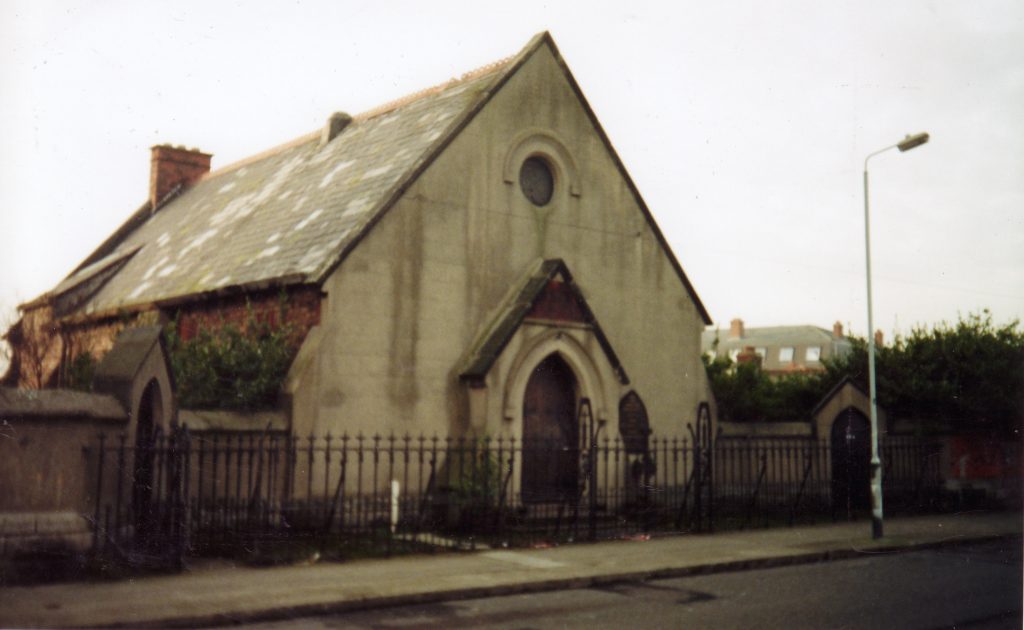
ME: There was an old mission hall by the river and that was a place with which you were acquainted when you were young. You didn’t attend meetings there, did you?
JOE: No, we didn’t go to meetings. We were warned not to go to any of the meetings there.
ME: They were Protestants?
JOE: Yes, they were Protestants. We used to throw stones at the bus that used to bring the Protestant children to the meetings. When we were older, we used to have cider parties at the back. Then gradually it decayed into near dereliction.
ME: Thankfully, these things don’t happen there now! Joe, did you change as you went through your teens?
JOE: Yes. Although I was brought up fiercely religious and there was talk about me becoming a priest at one stage, I ended up an atheist punk rocker. I suppose it was a typical Irish family story – a candidate for the priesthood in your early teens and an atheist punk rocker in your late teens. We started playing on the same circuit as a band called U2.
ME: U2?! I wonder what became of them.
JOE: I think they have notions about themselves now – the best band in the world!!!
ME: Did you know any of them?
JOE: Yeah, we knew them and at that time we shared several musical venues with them around town.
ME: Wow, you’re an ageing rocker then? So, as an atheist, you went to the Netherlands and you found yourself in Amsterdam.
JOE: I hitchhiked around Europe, John, with a couple of friends and I ended up in Amsterdam. Most of my time there was a bit of a drunken haze. One night I got mugged and that night I suppose I fell into a pit of despair. I just felt that all of my hopes and dreams … I knew I had hopes and dreams in my heart but they were all slipping through my fingers and I couldn’t manage it. I couldn’t control it. It is hard to articulate exactly what despair is in words, what profound despair is. I seriously and intentionally considered suicide that night.
ME: But something stopped you?
JOE: Yes, John. Again, it is hard to articulate. At the age of six in Dublin’s docklands I came very close to drowning. I can still remember it to this moment. I can remember it vividly and as I was preparing to throw myself into a canal in Amsterdam, I got a complete flashback to that event at six years of age. It may sound crazy to some people but it was as if a voice was saying to me, “What you’re doing is wrong”. It shook me to the core of my being. There’s a lovely line in that poem ‘Missing God’ …
ME: Oh, I know that poem! It’s in one of my blogs!
JOE: And the guy speaks about missing God like, “the way an uncoupled glider riding the evening thermals misses its tug.” And I felt as if I’d got a tug that night, as if something was pulling me back from the jaws of suicide saying, “This is wrong”. I came back to Dublin then and I was totally in despair because I’d gone off hitchhiking around Europe seeking adventure, but here I was and I was forced to admit that my life was falling apart and I was sinking into quiet despair.
ME: But somehow you went from there to faith in the Lord?
JOE: Yes, it’s a very long story but I was given a copy of the New Testament by this guy who was bananas about Jesus – whereas I was an atheist punk rocker! I was terrified that I would catch whatever he had. I threw the New Testament beside my bedside locker, inexplicably I eventually started to read it. I was always interested in history and famous people and I thought to myself, I’m reading about Jesus Christ. He’s somebody famous and I can quote him at parties and impress people. So I read Matthew’s Gospel and by the time I had finished Matthew’s Gospel, a revolution had taken place in my heart and mind and soul that has continued to this day. I can only say that the closest way of articulating it is in John Newton’s hymn where he says, “It was grace that taught my heart to fear / And grace my fears relieved / How precious did that grace appear / the hour I first believed”. Now I can only say that there I was reading Matthew’s Gospel as an atheist punk rocker and I began to fear that I wasn’t right with God. What if all of this is real? Etc.
ME: So you became bananas about Jesus?
JOE: Well, I don’t think I could nail down a particular fruit but let’s say that the fruit of the Spirit began to develop in my life!
ME: Joe, it was quite a few years after that that you and I first met.
JOE: Yes, John, but a lot of things happened before we met at the Irish Bible Institute. Within a year of me surrendering my life to Jesus, John, I felt that the Lord was leading me into Christian work in Dublin and to give up my job which was quite a drastic step for me. Part of my new Christian workload then was to develop outreach work in the inner city. And after a while we were seeing a lot of stuff happening in the Sherriff Street and Sean McDermott Street areas of inner-city Dublin. It got to the stage where we knew we had to pray and ask the Lord for a venue in the inner-city area. As I was praying about an office and a little desk and a window and a phone, the Lord led us to this place – the old mission hall that we had vandalised as kids and had a third of an acre of a site in the inner city.
ME: Wow!
JOE: And I was appalled at the thought that the Lord would want me to take on the old mission hall.
ME: Memories of cider in the back garden?
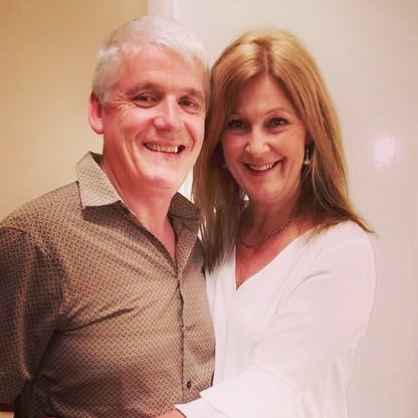
JOE: Not so much that, John. I just felt that this was the last place on the planet I would go to! You’re warned in school and you’re warned in the chapel and you’re warned at home not to go near this place. And the words “Prods out” were sprayed on the front door. They had faded with the weather but the implication was still pretty clear, you know. So Sharon and I decided that we would take it on. We called it ‘Mission Impossible’ at the beginning because it was an old mission hall. I learned the wisdom of that verse where it says, “The foolishness of God is wiser than man’s wisdom”.
ME: Yes.
JOE: A great verse in First Corinthians chapter one. It reminds you that sometimes God takes you to the craziest place to do something that will glorify his name.
ME: Wow, Joe, and sometime after that you signed on to become a student at the Irish Bible Institute. You’d left school at fourteen or fifteen, hadn’t you?
JOE: Yes, that was another crazy decision. I’d left school at fifteen because my Dad died when I was thirteen.
ME: But you signed on for a Master’s degree?!
JOE: Pretty crazy but I think in fairness to IBI they were saying that if you had a BA qualification or had ministry experience of more than twenty years (which I had working in Dublin’s inner-city), your ministry experience would allow you to submit an initial essay. This would then be assessed and then you would do two years which would take you up to BA standard and then you could do a final year which would give you your MA.
ME: So hope was an important theme or passion.
JOE: We took on the old mission hall and we renamed it ‘The Anchorage Project’ because the great biblical metaphor of the anchor – “hope like an anchor of the soul” as it says in Hebrews chapter six. And we always had a great passion to develop it into a hope-shaped space to showcase something of the Kingdom of God in the inner city.
ME: Yes, that idea of the space. There’s an American writer named Andy Crouch whom I often quote who has written a book entitled ‘Culture Making’. He always makes me think of you, Joe, and what you’ve been doing. For too long, he says, Christians have been happy to condemn, critique, copy and consume culture. The only way to really impact culture is to create culture. In a very short video about the book, he talks about a coffee shop near where he lives. It was opened by a young Christian fresh out of college who saw this building and created “a beautiful space which is now a whole cultural world of its own … where friends meet, teenagers come after school, Moms get together during the day. … A wonderful hospitable welcoming environment.” Now I’ve been to the mission hall, to the project, to the Fair Play Café and those words describe what you’re doing there so thoroughly.
JOE: I suppose that when I did my dissertation under your tutorship, John, and I can’t speak highly enough about your impact on my thinking – especially with the use of metaphors and using metaphors to help mould and shape our thinking in Christian work. My Master’s dissertation was four key concepts – beauty, children, community and justice. These are four key components through which hope seems to run like a river with four tributaries. And people connect with a real profound sense of hope and hope becomes tangible. I researched this through ancient thinkers like Aristotle and Augustine and all the big thinkers.
ME: Yes, I remember. Yes, you did.
JOE: Right up to the likes of Jurgen Moltmann and Miroslav Volf and Tom Wright or N T Wright as well … to try and get a sweep through theological and secular thinking around the subject of hope. And so it was this quadrilateral (to use an academic word) of beauty, children, community and justice that I articulated in my dissertation and then pulled back into our ministry at the old mission hall.
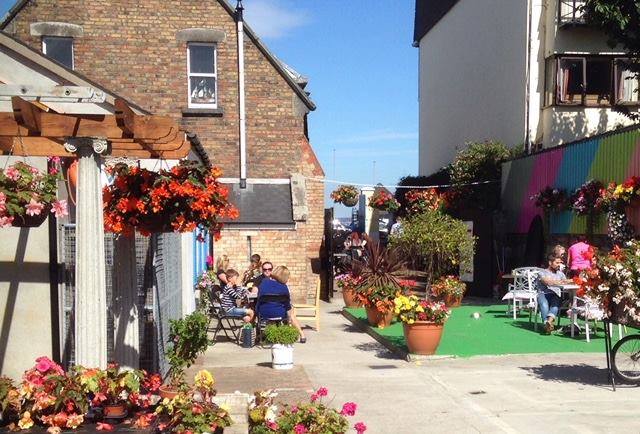
We’re busy right at this moment planting seeds in our greenhouse and these seeds are sprouting in the midst of a Covid pandemic. We’re working furiously because we know that we’re going to see better days than what we’re in right now. There will be a tangible beauty, as our garden is going to be dripping with flowers again. Several dozen children will come back here again every day to our childcare project. We have a community café and a garden space where our local community can enjoy meeting up again. And we work very keenly with justice initiatives locally as well as overseas. We work to develop an integrated project here whereby people can connect with expressions of hope and be drawn under the umbrella of God’s outreach in the community.
ME: That’s wonderful, Joe! Now you mentioned the pandemic. That must have some impact on what you can do with the café.
JOE: It has indeed, John. We have a tips jar in the café which we call it the ‘Share Your Lunch Fund’. When Jesus was presented with the need of five thousand plus people, he said to his disciples, “You give them something to eat”. It’s very profound that this happened at this moment because Jesus obviously was ready to feed everybody but he halted a miracle because he wanted some human interaction and the disciples really struggled with this. So as we had been reflecting and praying over the needs of this community, this city. We felt the Lord saying to us, “You give them something to eat” so we put a tips jar there and we said that’s going to be the five loaves and the two fishes. Whatever goes into that, we’re going to build up this fund. Now this pandemic hits and over the years we’ve been giving free food to lots of people in the community, people in difficult circumstances and so on with this Share Your Lunch Fund. And now we have the police, district nurses, worried residents and family members contacting us and saying, “Can you deliver food to this person or to that person?” We have scores of people every day that we’re feeding.
ME: And your daughter has launched an online appeal to raise more funds for this?

JOE: Yes, she set up a GoFundMe page and would you believe, John, that last November, before anybody ever heard of Covid or whatever, she ran a half-marathon and she was hoping to raise a thousand euro for our Share Your Lunch Fund?
ME: And you’re still open to receiving more if I put a link into this blog?
JOE: Yes, that is very thoughtful of you. You can be sure that it’ll receive more because it’s just whatever the Lord wants to do. It’s a bit like the disciples. I wonder, and I’m sure you would wonder, at what stage did the disciples start doing the Maths as the five loaves and the two fishes were being handed out.
ME: Well, I was a Maths teacher – I would have done that early on and I would have been stumped.
JOE: I honestly feel that they didn’t actually do it. That’s why Jesus made them collect the left-overs!
ME: Joe, it has been wonderful to talk with you like this. May God richly bless all that you and Sharon and your team continue to do in Ringsend and its impact to the ends of the earth. Bless you, brother.
JOE: Bless you too, John.
The above mentioned GoFundMe page can be found at https://www.gofundme.com/f/help-me-keep-the-hope-going.
You can read more about Joe’s project in Vox magazine, the Irish Times, NewsFour, the Irish Independent, and Faith in Ireland. See also TripAdvisor. You can also find Fair-Play Cafe Dublin on Facebook.
Grateful thanks to Vox and NewsFour for kindly granting permission to use their photos.
The full text of this interview is available here and it includes more about Joe’s childhood in the docklands and about the band’s relationship with U2!
More Pictures
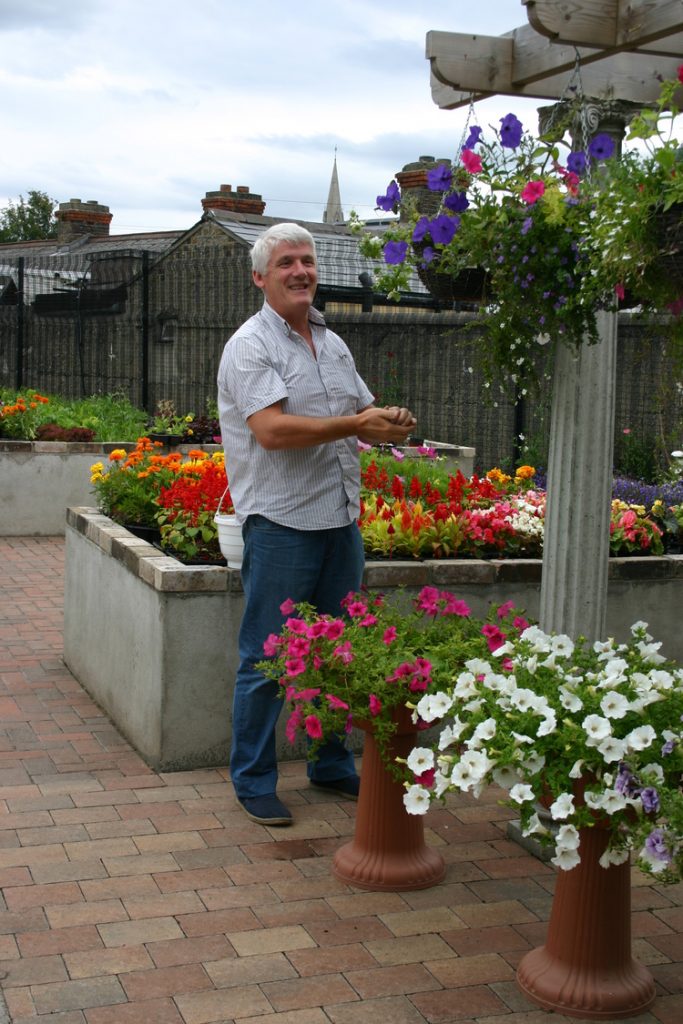
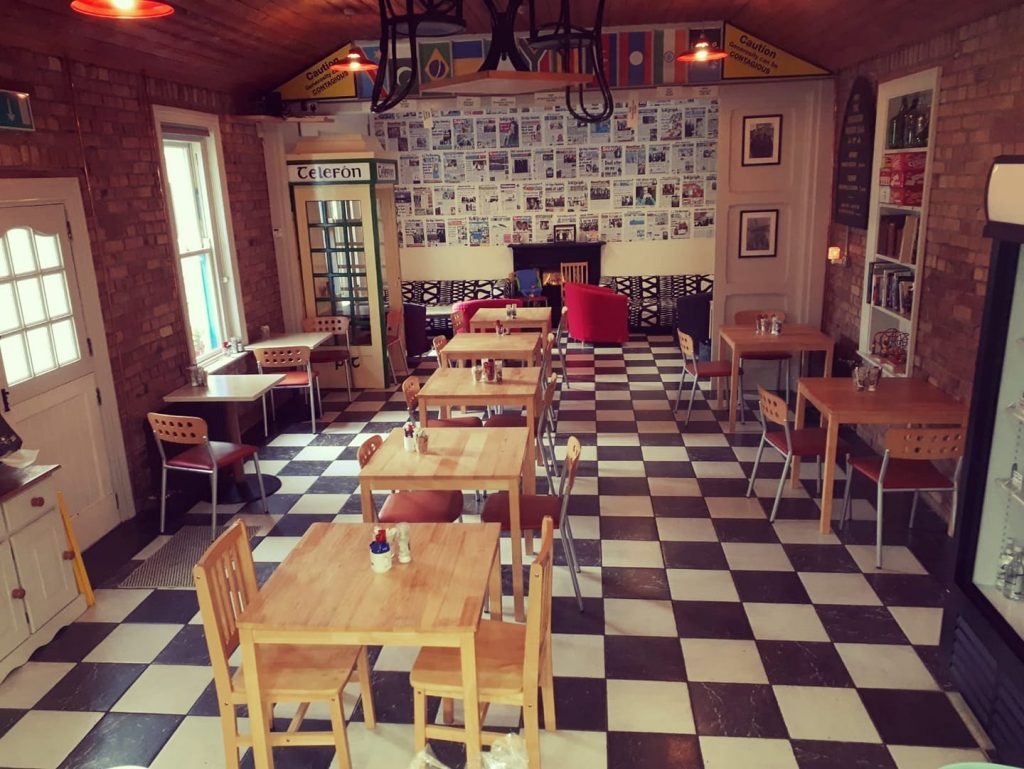

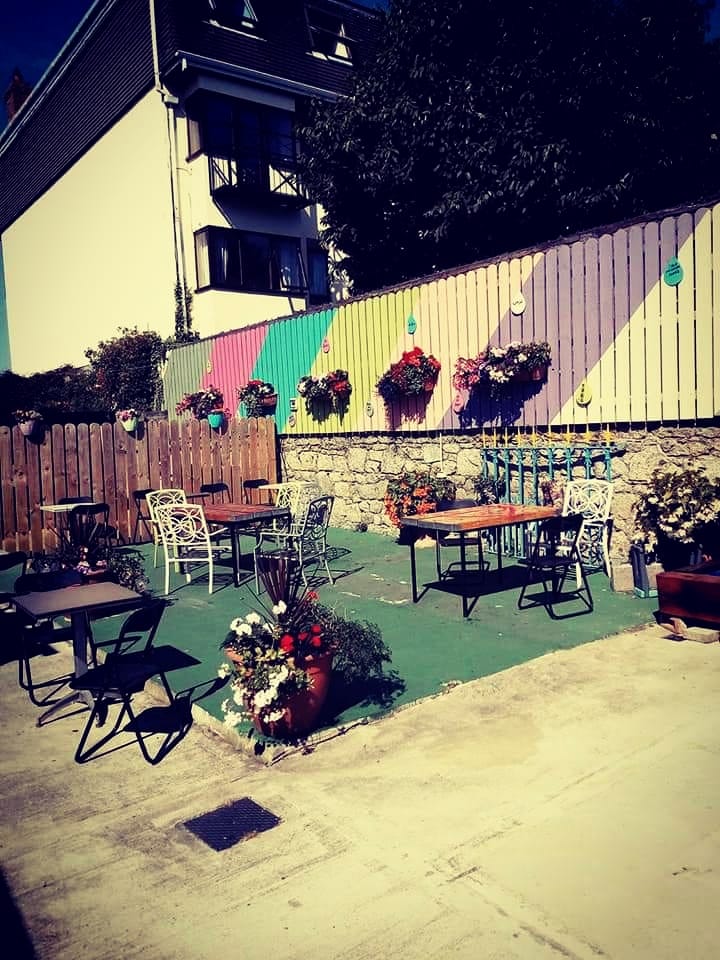
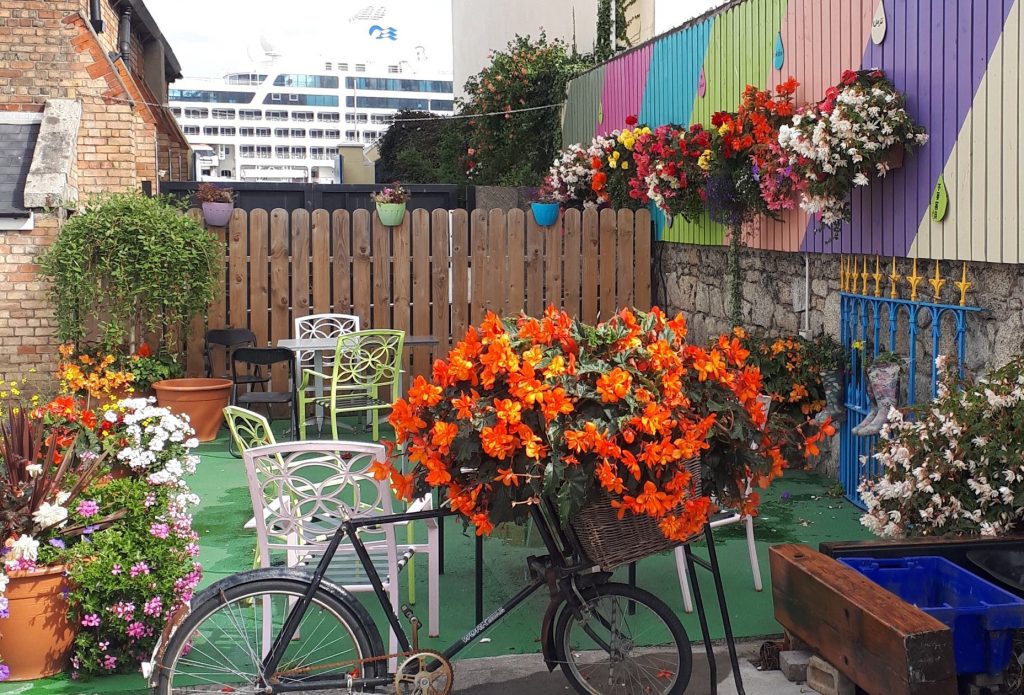
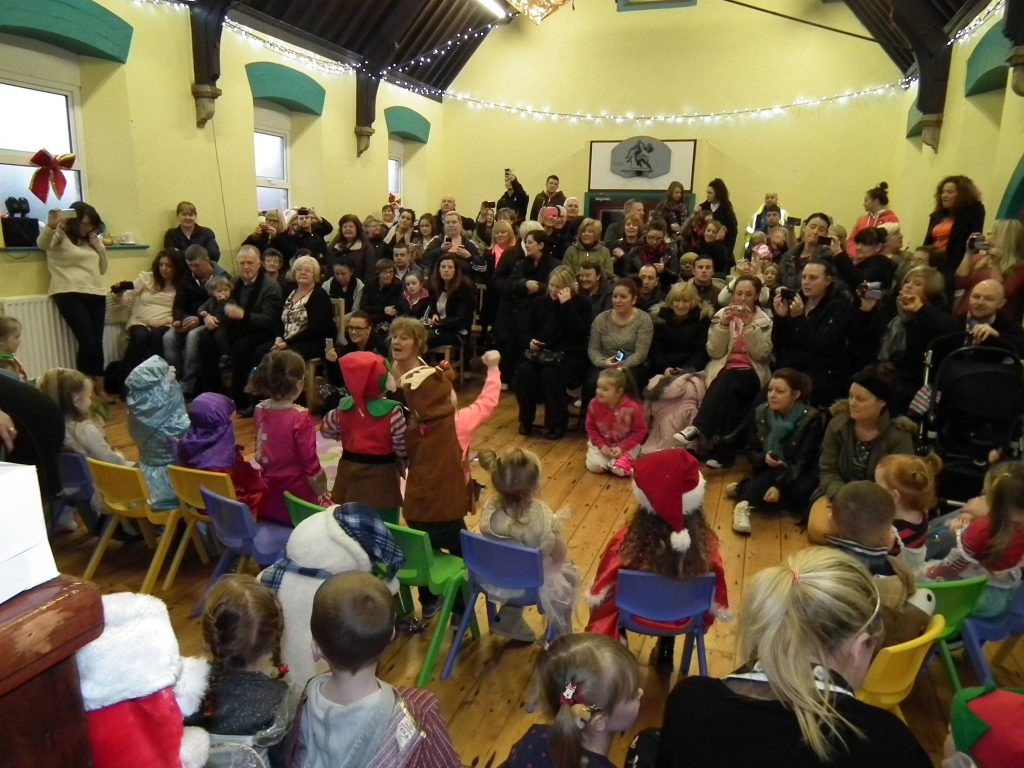
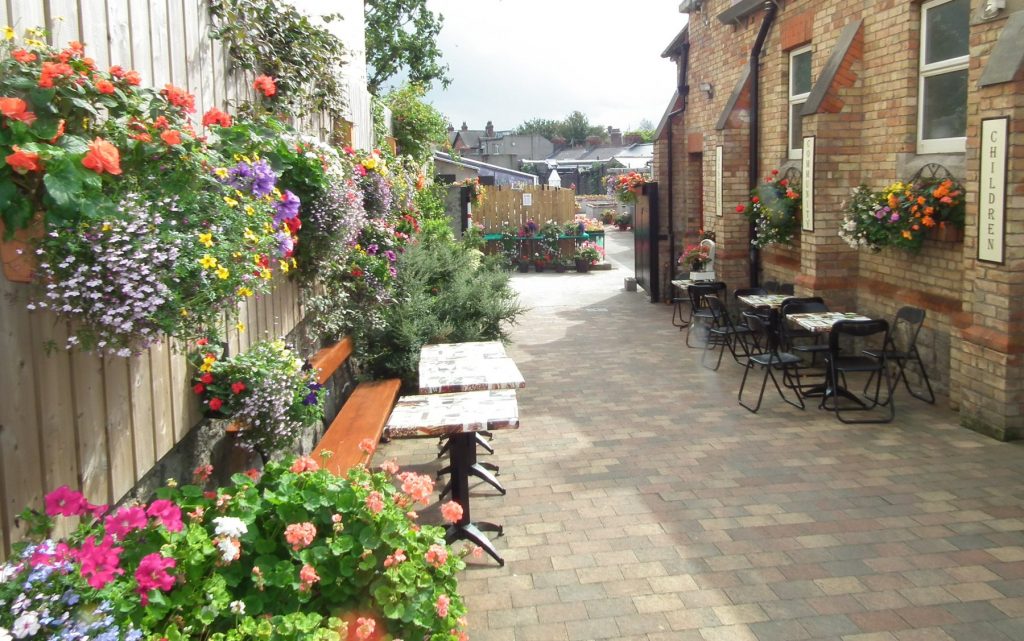
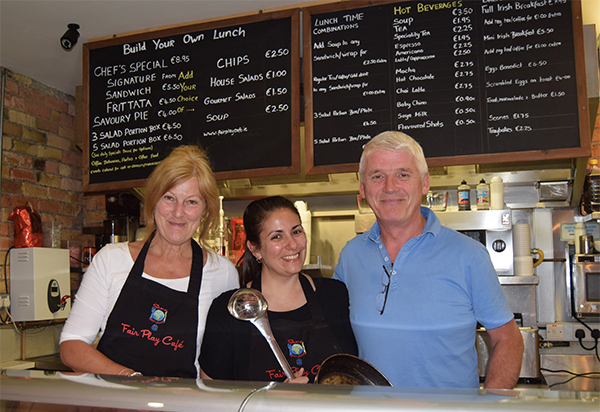
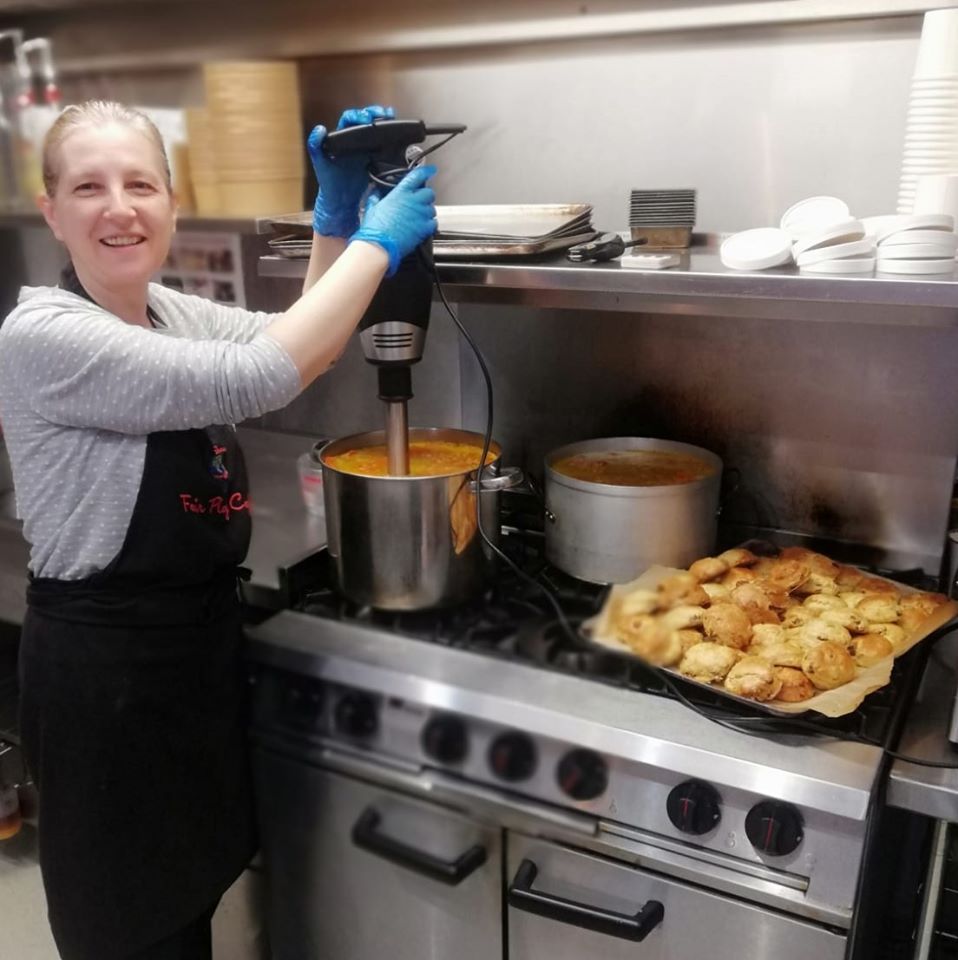
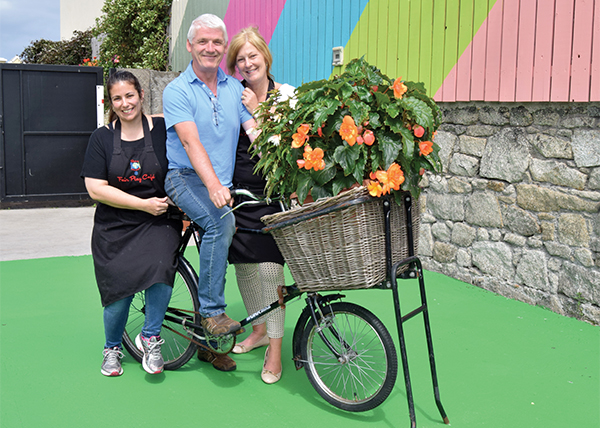
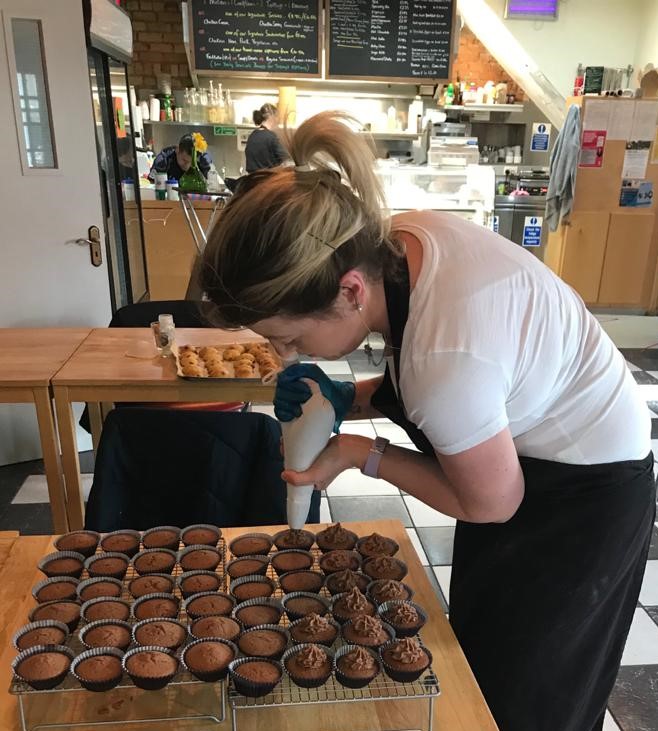
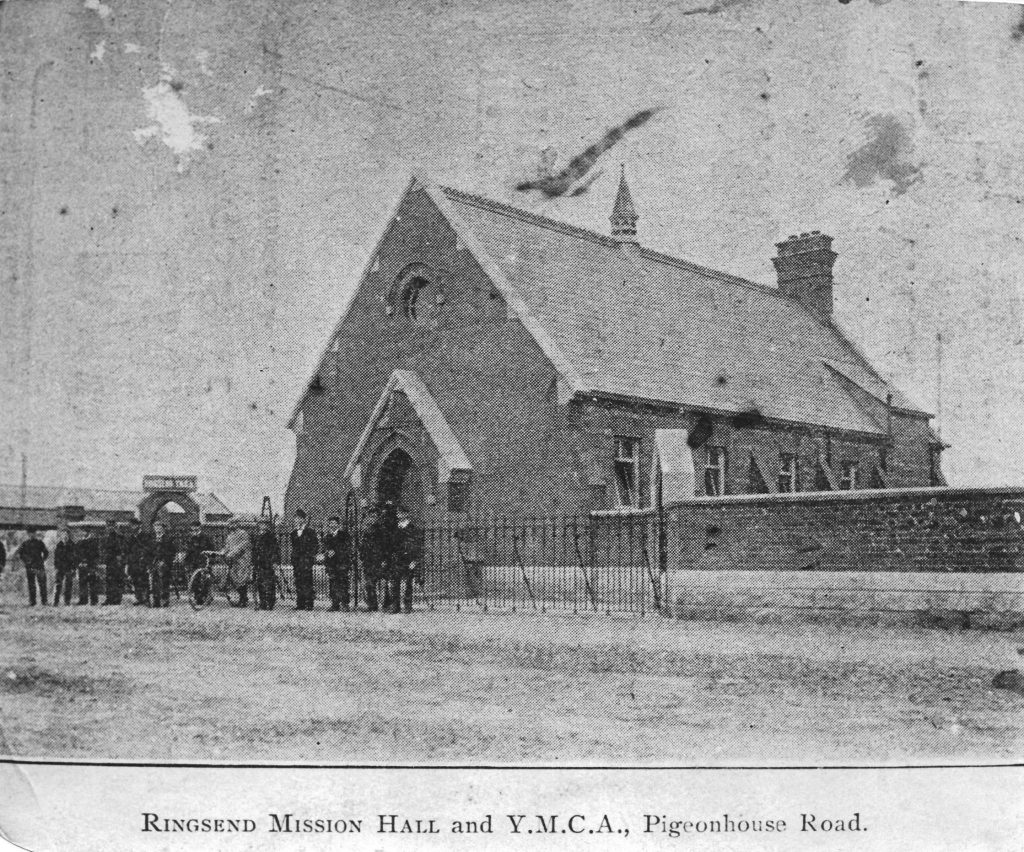
End of pictures!
P.S. If you would like to be notified when new blogs are posted, please EITHER (1) email me through the contact address on this website OR (2) message me if you have come here via a link posted on Facebook.
